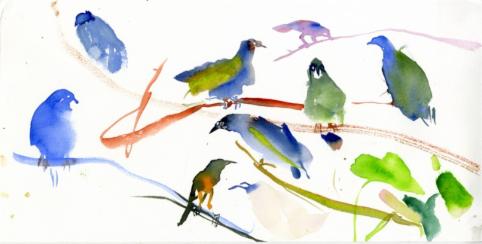
Department of Anthropology,
University of California, San Diego (UCSD)
Biological anthropology at the UCSD addresses the evolution of the culture-bearing capacity in humans and closely related species from a strongly comparative perspective. Humans, today, are a super-dominant species. How we got this way fires up public and scientific imaginations; yet while there are many theories and speculations about our origins none has yet provided a full explanation of our evolutionary history. The difficulties go beyond the mere facts to profound philosophical issues including ones extremely relevant to the modern human predicament.
The Primate Information Network (PIN) is part of the Library and Information Service, National Primate Research Center, University of Wisconsin - Madison
http://pin.primate.wisc.edu/
American Society of Primatology (ASP)
The American Society of Primatology promotes and encourages the discovery and exchange of information regarding primates.
International Primatological Society (IPS)
The International Primatological Society (ASP) was created to encourage all areas of non-human primatological scientific research, to facilitate cooperation among scientists of all nationalities engaged in primate research, and to promote the conservation of all primate species.
Baboons Online
Baboons Online is a web resource to promote comparative studies across baboon populations that will inform our understanding of baboon behavior, ecology, and evolution. Baboons Online encourages primatologists to share data, develop comparable data collection methods, and engage in collaborative cross-population analyses. Ultimately, the result will be a greater understanding of the variation, flexibility, and evolution of baboons will contribute to a better understanding of primate socio-ecology and human evolution.
Tsaobis Baboon Project
Tsaobis Baboon Project is based in the privately owned wildlife reserve of Tsaobis Leopard Park in central Namibia. It carries out fundamental research in behavioral ecology and population ecology using desert baboons (Papio ursinus) as a model system. Their work has a strong conservation theme.
Peaceable Primate Sanctuary
Many baboons in research live in isolation. These social animals need the companionship of other baboons. Peaceable Primate Sanctuary will give them the natural social structure they need. Their goal is to provide sanctuary for baboons who have been used in medical research.
African Conservation Centre
African Conservation Centre is an important partner of UNBP. ACC’s Nairobi offices house the Baboon Project’s computer lab and logistics base. ACC also helps facilitate UNBP’s research and community based projects.
African Conservation Fund
African Conservation Fund is the U.S. partner of African Conservation Centre. African Conservation Fund helps to raise funds and awareness for specific UNBP projects, and helped to create this website.
